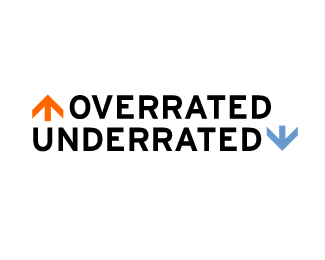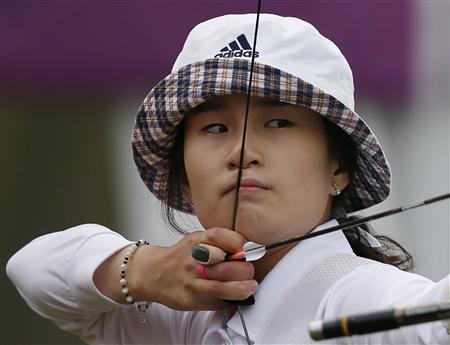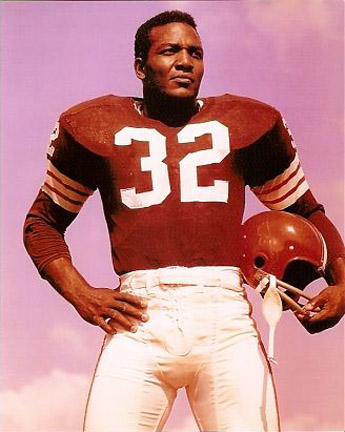Over, Under, and Properly Rated #2 - Summer Olympics Edition
My current favorite sports talk show is the Russillo and Kanell Show that airs nationally on ESPN radio. On the show, the hosts occasionally do a 'rated' segment where they categorize sports teams, players, and other aspects of sports and pop culture into one of three buckets. 'Overrated' for things they think are generally praised or valued more than they should be. 'Underrated' for the opposite - things that do not get enough attention or accolades. And finally 'Properly' rated, for the things that receive about the correct level of praise or derision.
It is a fun segment, complete with sound effects, and in the spirit of running out of good ideas this week, I am going to steal borrow for this site. So here goes, the second installment, of 'Over, Under, and Properly Rated' (SFB edition). I am going with a Summer Olympics theme this time around, as I have caught just enough of the proceedings, (about 15 minutes a day), to render an authoritative evaluation of the spectacle and competition.
So here goes...
Overrated
1. Opening Ceremony - Too long, too much nonsensical blathering by the commentators, and what essentially amounts to the the most boring parade of people wearing funny hats you've ever seen. Is it fun to see a few recognizable superstars milling about with the rest of the interchangeable rowers and team handball players? Sure. But on the whole, the opening ceremony is terrible. And overrated.
2. Rowing - If the entire sport consists of the activity you do to train for doing the sport, that adds up to a really uninteresting event. It really is not that far removed from watching a line of people on the treadmill at Planet Fitness. Side note: Ask the rower in your life about the classic movie, Oxford Blues sometime.
3. Zika, deadly, bacteria-laden water, crime - In the run-up to the Rio games, much of the reporting was frightening in nature. Zika virus carrying mosquitoes were rampant, the waters for some of the competitions were horribly polluted and unsafe for the competitors, and if you strayed too far off course, you were likely to be mugged, or worse. Aside for a few, seemingly isolated issues, the games (so far) have been executed well, more or less.
4. Judo - I watched one judo match. It lasted for four minutes, almost nothing happened, neither combatant scored a point, and the match was decided on the equivalent of 'yellow card warnings'. I've been at funerals that had more action and excitement.
5. Golf and Tennis - Probably should not be in the Olympics, or perhaps should take a page from soccer and become Under-23 events, or something like that. The top tennis players and golfers in the word are colossally wealthy, and the source of their wealth has never been nor will ever be winning a medal at the Olympics. When the very best athletes at a sport don't really want to show up at the Olympics to compete in that sport, it is probably time to have a re-evaluation of the entire event.
Underrated
1. Rugby - I caught a fair bit of both the Men's and Women's Rugby (in the Olympics it is the 'Sevens' format), and just about every game was exciting, fast-paced, and blissfully over in about 30 minutes. Rugby Sevens might become the next big thing. After Tikka Masala flavored potato chips that is.
2. Table tennis - Makes the underrated list as the top , 'I bet I could do that if I only had a couple of years to practice' Olympic sport. No, no, you can't. But it is still a really fun watch. Add a few red solo cups of cheap beer to the table and you have America's next great spectator sport.
3. Archery - Makes the underrated list solely for one reason - the cool as hell bucket hats that most of the archers wear.
4. Javelin - Of all the 'throw this thing as far as you can' sports, the best has to be javelin. The USA would be better at this if the government hadn't banned lawn darts about 20 years ago. Lawn darts was how many an aspiring javelin thrower got their start as a 7 year-old.
5. Fencing - A lot of yelling, a lot of slashing at people with a sword, and a lot of normal-sized people competing that gives you at least a hint of (false) hope that someday you might be an Olympian too. I am all about the Fencing.
Properly Rated
1. Men's basketball - Pros: Most of the teams have several, or at least a few NBA players, and the overall talent level and competitiveness of the games has improved. Cons: It still is a little dull to watch the USA beat some over matched team by 45 points.
2. Swimming - Is it great as a USA citizen that we seem to win just about everything? Yes. Is it a little bit falling into Men's Basketball territory in that regard? Yes. And I hate the chlorine-heavy air that always seems to surround any indoor pool. And don't even get me started about what might be in that water.
3. Team Handball - Sort of relatable because it seems like a combination of sorts between soccer and basketball. Sort of not relatable because after about 3 minutes you have no idea what is really going on. The one game I saw pitted Denmark v. Croatia who were wearing similarly colored uniforms and it was impossible to figure out who was who.
4. Weightlifting - Would be on the 'underrated' list if not for the occasional gruesome injury. And it would definitely be on the underrated list if they somehow incorporated some of the classic 'World's Strongest Man' type challenges. It would be awesome if the Beer Keg Throw or the 'See how far you can pull a bus using a rope that you have to hold with your teeth' were Olympic sports.
5. Race Walking - Ridiculous to look at on one hand, but on the other hand weirdly compelling.
What do you think? Do I have it right?
Is this post itself over, under, or properly rated?
Have a great weekend!

 Steve
Steve



